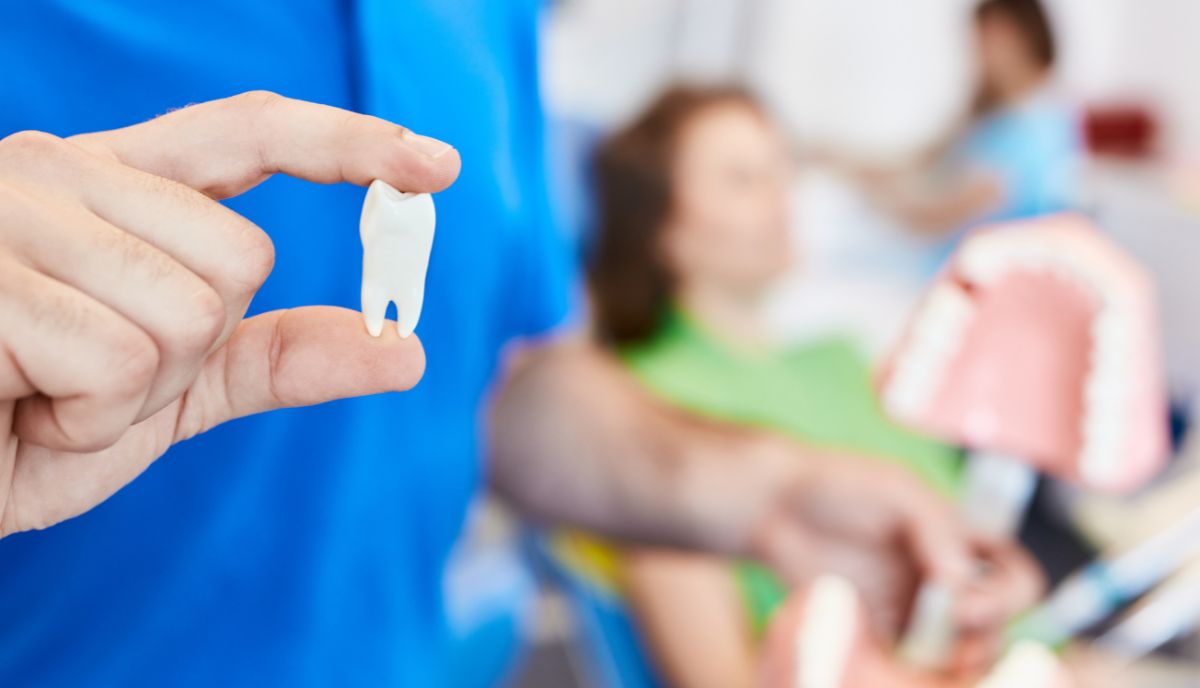
Having a chipped tooth can be painful, especially if it’s chipped in such a way that it exposes sensitive nerves beneath the surface of your tooth. One of the first things to consider when trying to figure out if you have an emergency situation on your hands is whether or not you have any pain associated with the chip in your tooth. If you do have pain in your tooth, there are several other factors you should take into consideration before deciding that you have an emergency on your hands.
What is an Emergency Dentist
Emergency Dentists are available to help when you experience any pain. They can also repair any damage done to your teeth or mouth if you have been in a car accident, fallen and hit your face, or sustained some other type of injury that has caused damage. An Emergency Dentist is someone who is certified in the field of dentistry and can provide the appropriate care for your needs. If you need to see an emergency dentist because of a dental emergency, don’t hesitate – just go! You should go as soon as possible since untreated dental emergencies can lead to further health problems.
What Causes a Chipped Tooth
A chipped tooth occurs when the part of your tooth that is close to the gum line breaks off. This can happen from biting into something hard or from getting hit in the face with something. If you chip your tooth, you might not feel any pain at first, but over time it will become sensitive and more painful.
The severity of the injury determines how much treatment you need. There are some things that can be done at home, like rinsing your mouth out with water and gently brushing your teeth or using an oral rinse if available. However, if there is bleeding in the mouth or if there is a chance of infection then it’s best to see a dentist as soon as possible. In order for them to fix your tooth, they may need to drill away the broken pieces and fill in the space left behind.
How can I Prevent this in the Future?
If your tooth is chipped, it’s important that you visit the dentist as soon as possible to get it fixed. But how can you prevent this from happening in the future? Here are some tips:
Avoid eating crunchy or hard foods like chips, nuts and hard candy that could chip your teeth. The same goes for chewing ice cubes too. they’re just as tough on your teeth. If you do eat or chew something that might be harmful to your teeth, spit it out and rinse your mouth with water. Avoid clenching or grinding your teeth while sleeping at night. this will increase the likelihood of a tooth being chipped or broken. And if you have a habit of biting your nails or sucking on pencils, those habits should stop immediately because they will damage the soft tissues in your mouth. Finally, make sure you regularly clean your teeth to remove plaque and bacteria which contribute to gum disease which may weaken enamel and lead to dental decay.
What are some treatments for chipped teeth?
A chipped tooth may not seem like such a big deal, but it can lead to much more severe problems. In fact, if you do not see your dentist right away after chipping your tooth, the damage can cause further problems. This means that waiting too long before seeing your dentist could be dangerous or even fatal.
There are three main treatments for chipped teeth: fillings, crowns and veneers. Fillings are the most common treatment because they allow you to save natural teeth and avoid costly procedures. Crowns are used when there is so much damage to the tooth that filling cannot repair it. Veneers are thin pieces of porcelain that cover up broken or discolored teeth in order to create a more beautiful smile.
What Happens During Treatment?
Doctors will use their hands to clean the tooth and remove any pieces of the broken tooth. Once that is complete, they will apply a sealant to the tooth to hold it in place and stop any more pieces from falling out. If there is still sharp edges on the tooth, they may use a dental file or drill to create an indentation in the affected area. The dentist will then apply heat (using light or electricity) or pressure (using forceps) until all sharp points are gone. The dentist may also prescribe antibiotics if there was any risk of infection. In severe cases, the dentist might need to give you anesthesia before doing anything else.
If your tooth chipped after a fall, go see your dentist as soon as possible for treatment.
When Can I go Home After Treatment?
If your teeth are already feeling sensitive to hot or cold liquids, or if you have any pain in your jaw, then it’s likely that the tooth has fractured. Fractured teeth should always be seen by a dentist as soon as possible so they can stabilize the tooth and fill in any exposed nerves. The dentist will then recommend follow up treatment. If there is no pain, the dentist may be able to wait and see what happens over the next few days. This is because sometimes when teeth chip, they heal themselves through natural processes like bacteria and saliva cleaning away debris from the tooth surface.
Now that my tooth has been treated, what should I do at home?
Now that your tooth has been treated, it is important to take care of the area. First, rinse your mouth with water and use salt or baking soda to cleanse the area for at least five minutes. Then, apply a cold pack or ice to the injured site. Leave it on for 10-15 minutes every hour. Lastly, keep your mouth as dry as possible. Drink through straws and avoid any hot liquids like coffee or tea until you have healed completely. If your injury seems to be worsening after 24 hours, please contact our office again!
Final Thought
A chipped tooth is not the most urgent dental problem to deal with. In fact, it can wait days or weeks before you take care of it. It’s more important to deal with your health first, and then your teeth. However, if you’re in pain, there are some steps you can take for relief:
- Run cold water over the area for 10 minutes
- Place a cold pack on top of the tooth
- Take ibuprofen or acetaminophen













